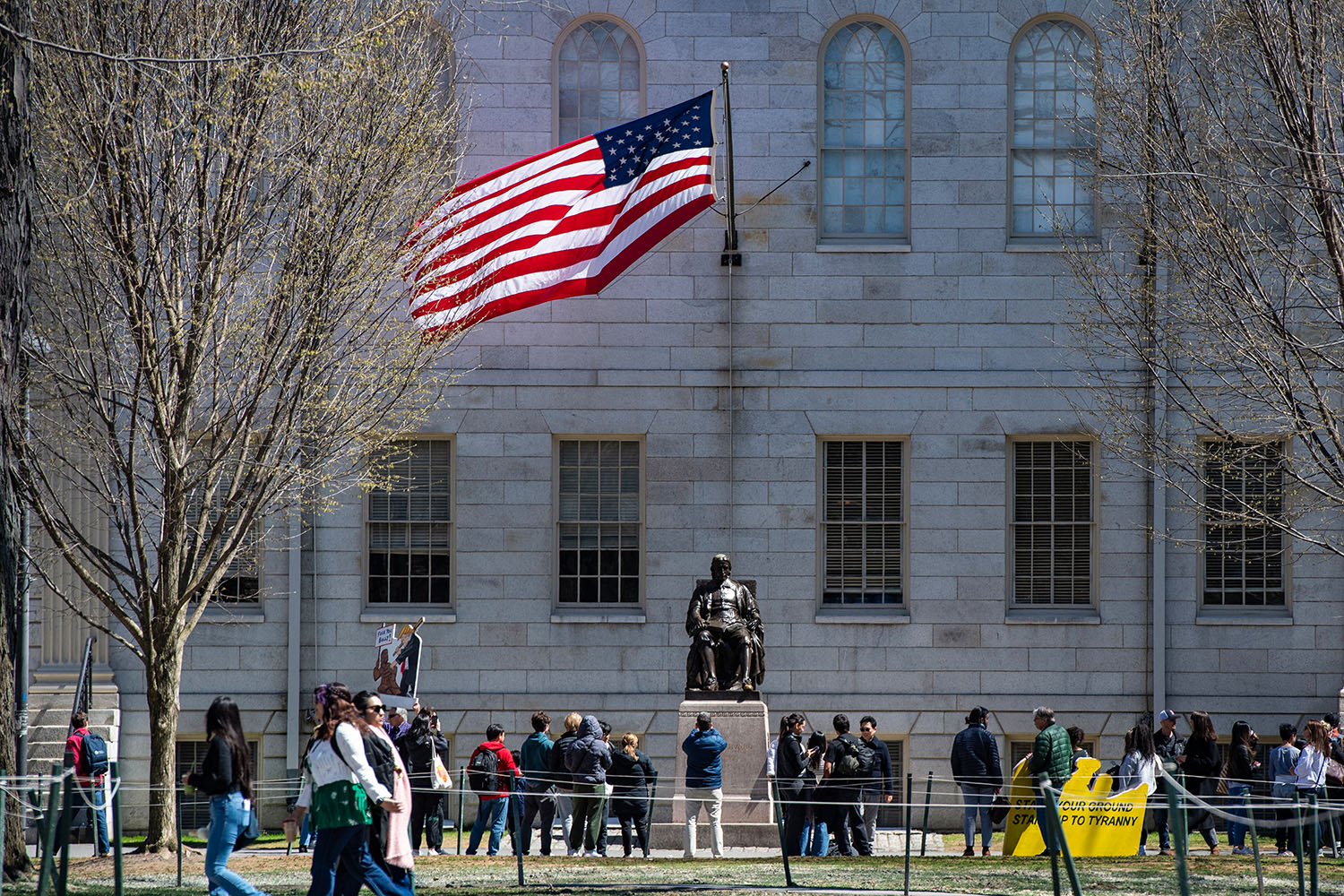Heavy rain swept through Cambridge, Massachusetts, last Thursday, washing the pavements clear of last week’s graduation confetti. Inside Harvard’s quiet dorms and still-lit libraries, a different cleansing began.
In a terse letter, homeland security secretary Kristi Noem revoked the university’s licence to host international students – “effective immediately”. Harvard now has 72 hours to surrender every record – formal file or scribbled note – that might link a non-immigrant student to protest, violence or some unnamed offence. More than a quarter of the student body could be expelled for the passport they carry.
Panic rippled through WhatsApp. Should we leave tonight or lie low? A volunteer lawyer opened an emergency Zoom; the waiting room overflowed. Rumours spread of laptops searched at Boston’s Logan airport and of social media posts kept as evidence. Even friends from “safe” countries – Canada, Germany, France – refreshed airline sites, hoping a swift exit might spare them the encounters with Ice (Immigration and Customs Enforcement) now common for students in Boston .
Our own lives stand in that storm. I, Hugh, am a Scottish physician with dual US-UK citizenship. David, once a Bank of England policy adviser, studies here on an F-1 visa. We arrived last August as Kennedy scholars, beneficiaries of a fellowship founded after President John F Kennedy’s death to bring British students to Harvard and MIT – and, quietly, to keep an enduring thread of transatlantic trust.
Twelve hours before the letter landed, David flew home to London for the summer break. His books still lie open on his desk, next year’s syllabuses fanned across his bed. Whether he will reclaim them is uncertain. I cross a half-empty campus, imagining how much quieter it will grow if one student in four vanishes by executive order.
The administration defends its decision by accusing Harvard of “fostering violence, antisemitism, and coordination with the Chinese Communist party”. The evidence is slight, but accusation travels faster than proof and lands with greater force. For students, the message is plain: the institutions that promise shelter may withdraw it without warning.
‘The real test is whether America still wishes its borders to open for argument [and] friendship’
‘The real test is whether America still wishes its borders to open for argument [and] friendship’
If you were born near the millennium, this feels less like a shock than a repetition. We were children the morning classrooms switched on the news of 9/11, teenagers when the Great Recession hollowed family savings, and freshmen just as a pandemic closed the campus gates.
Each season taught the same lesson: belonging is conditional, and the ground can shift overnight. Little wonder that fewer than a third of young Americans place steady faith in public institutions. Donald Trump’s order is the latest tremor – proof that our futures rest on decisions made far from our reach.
What makes the blow sharper is what it reveals about the institutions themselves. A university emptied of its international students loses not only tuition but also texture: the accents in seminars, the questions that sidestep local assumptions, the friendship that reminds two nations they are still neighbours. A nation that drives out the scholars it once courted hollows its future twice over – first by dimming its classrooms, then by telling the next generation its trust is misplaced.
Our scholarship to Harvard rests on a modest conviction: that study shared across borders builds a sturdier common life than any treaty. It is how a dual citizen and a visa holder became friends. When a single unsigned directive can threaten that ordinary fellowship, the country narrows – curiosity retreats, conversation is filed under paperwork, and hope is siphoned away from the very rooms meant to cultivate it.
Newsletters
Choose the newsletters you want to receive
View more
For information about how The Observer protects your data, read our Privacy Policy
Even if this order is withdrawn – bureaucracies sometimes retrace their steps – the bruise will linger. Students wary of authority will carry fresh proof of its caprice, and institutions already thinned of meaning will feel a little emptier for lack of those who once believed in them.
The real test is not whether David clears customs next week but whether America still wishes its borders to open for argument, for music, for the unplanned friendship that can redirect two lives at once.
Should that wish fade, the loss will not stop at Harvard’s gates. It will echo wherever young people ask whether the promises made to them can survive another change in weather – and whether the institutions that made those promises are prepared to keep them.
Hugh Pearson is a master of public health student and David Gayle a master of public policy student at Harvard University
